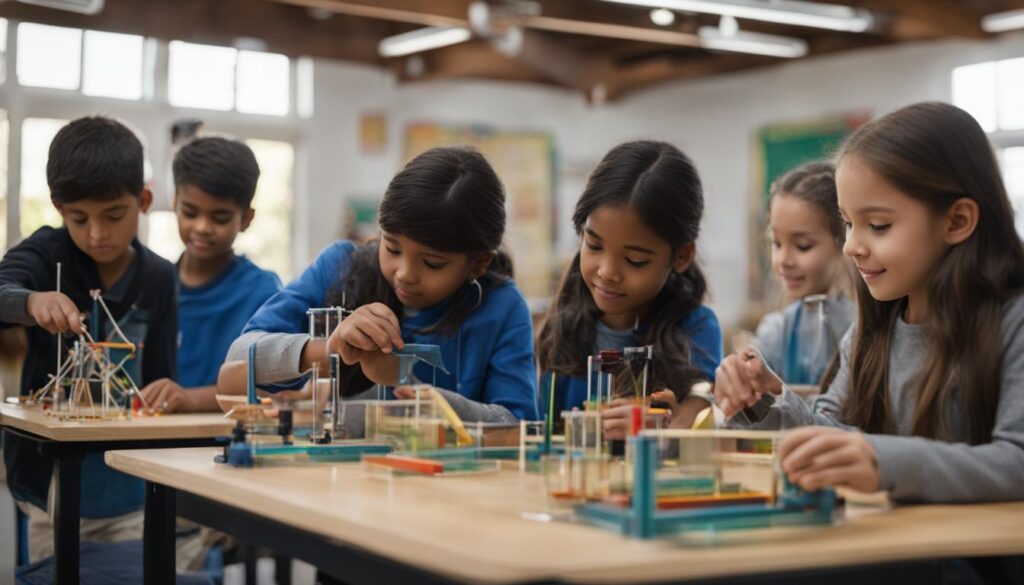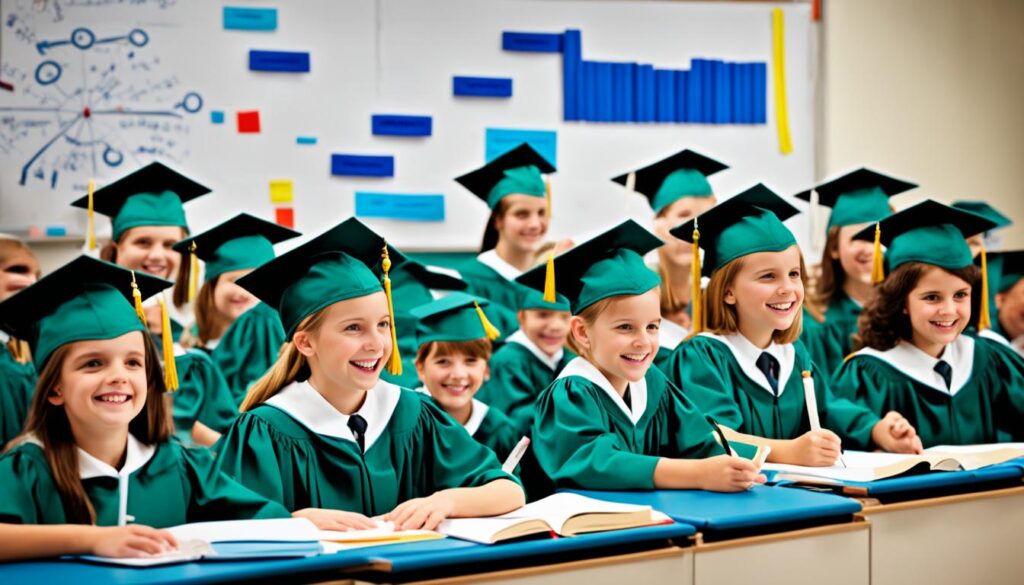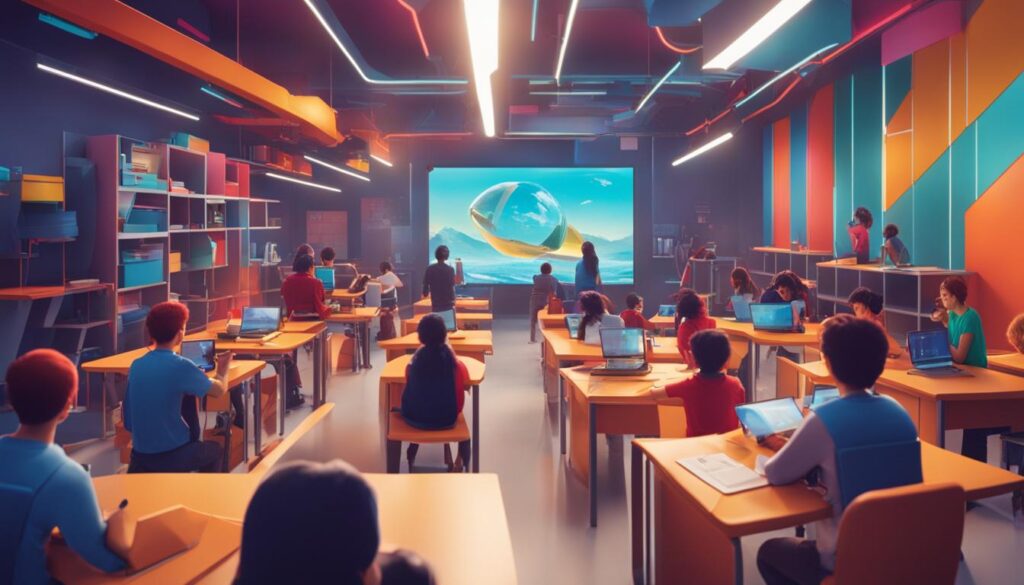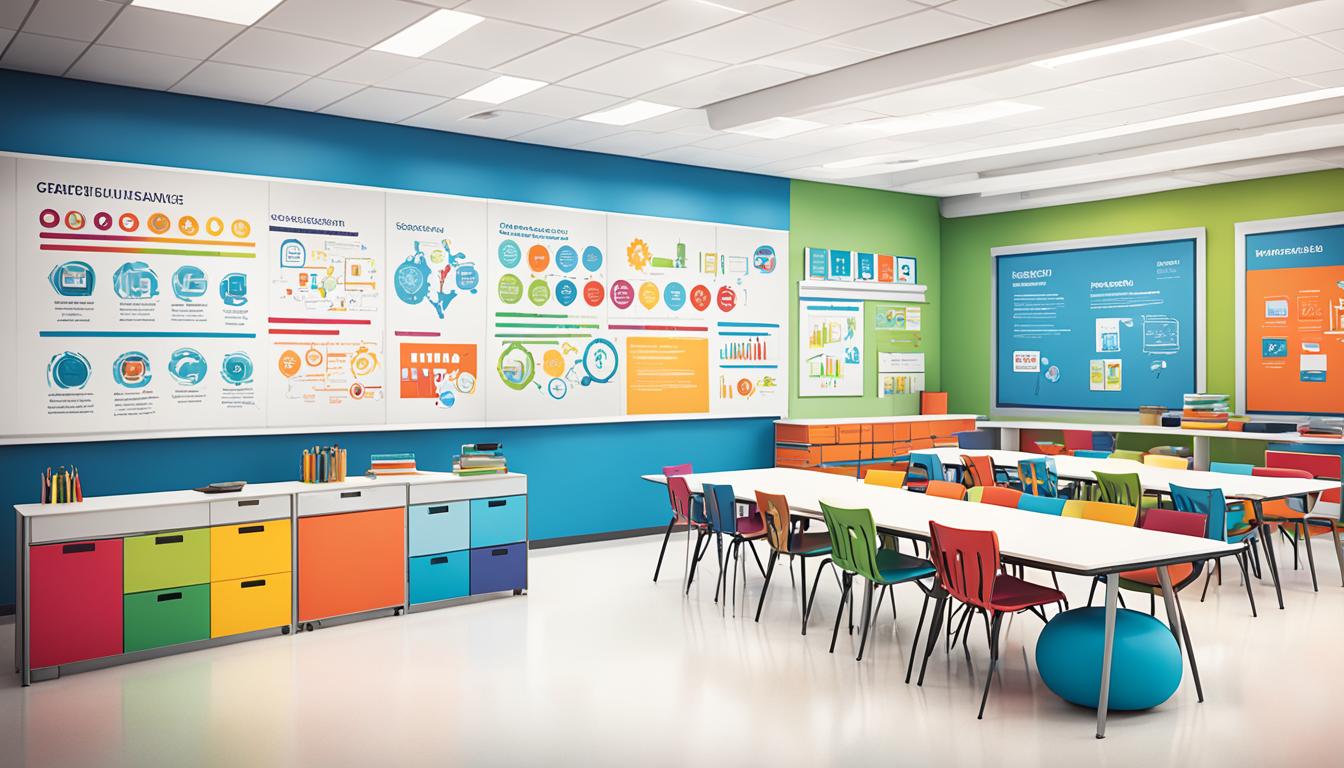Is the future of education characterized by personalized learning, alternative models, and innovative approaches? The micro-school model is paving the way for a revolution in education, challenging traditional beliefs and offering a unique educational experience.
With personalized instruction, small class sizes, and an emphasis on individualized learning, micro-schools are redefining the educational landscape. Through this article, we will explore the impact of micro-schools, examine their success factors, and discuss their potential to shape the future of education.
Contents
- 1 Cultivating Meaningful Student-Teacher Relationships
- 2 Integrating Neurodiverse Learners
- 3 Is Micro-Schooling the Next Evolution of Homeschooling?
- 4 Implementing Effective Quality Assurance for Micro-Schools
- 5 Spotlight on Experiential Learning Micro-School Models
- 6 Preparing Students for the Real World via Projects
- 7 Examining Academic Outcomes in Micro-Schools
- 8 Can Tiny Micro-Schools Lead Edtech Innovation?
- 9 Comparing Micro-School Network Options
- 10 Predicting the Future Trajectory of Micro-Schools
- 11 FAQ
- 11.1 What makes micro-schools different from traditional schools?
- 11.2 How do micro-schools cultivate meaningful student-teacher relationships?
- 11.3 How do micro-schools accommodate neurodiverse learners?
- 11.4 How does micro-schooling differ from homeschooling?
- 11.5 How do micro-schools ensure academic excellence?
- 11.6 How do micro-schools incorporate experiential learning?
- 11.7 How do micro-schools prepare students for the real world?
- 11.8 What are the academic outcomes of micro-schools?
- 11.9 How do micro-schools integrate educational technology?
- 11.10 What are the benefits of joining a micro-school network?
- 11.11 How will micro-schools shape the future of education?
- 12 Source Links
Key Takeaways:
- Micro-schools offer a personalized and innovative approach to education.
- Small class sizes enable focused instruction and individualized learning.
- Meaningful student-teacher relationships are prioritized in micro-schools.
- Micro-schools integrate and accommodate neurodiverse learners.
- Experiential learning and practical skills development are central to micro-schools.
To discover more about the micro-school model and its potential to revolutionize education, explore Canada Global Academy – a leading provider of innovative micro-school solutions.
Cultivating Meaningful Student-Teacher Relationships
Micro-schools are known for their commitment to cultivating meaningful student-teacher relationships, which lie at the heart of their educational philosophy. Unlike traditional schools, micro-schools prioritize personalized instruction and mentorship to create a student-centered approach that fosters connection and engagement.
In micro-schools, teachers have the opportunity to truly know their students on an individual level. This allows them to tailor their instruction to meet each student’s unique needs, interests, and learning style. Through personalized instruction, teachers can create a learning environment that empowers students to thrive academically, socially, and emotionally.
At a micro-school, students benefit from more than just academic guidance. They also have the opportunity to form deeper connections with their teachers, who serve as mentors and role models. This mentorship provides students with the support and encouragement they need to reach their full potential.
The individualized learning approach in micro-schools enables teachers to identify and address students’ strengths, weaknesses, and passions. By tailoring education to the needs and interests of each student, micro-schools create a tailored education experience that fosters a love of learning and prepares students for the challenges of the real world.
A student-centered approach is not only beneficial for students but also for teachers. By focusing on building relationships and providing personalized instruction, teachers experience a greater sense of fulfillment and job satisfaction. This, in turn, contributes to a positive and nurturing learning environment for students.
The Importance of Personalized Instruction
Personalized instruction is a cornerstone of micro-schools and plays a vital role in cultivating meaningful student-teacher relationships. By tailoring instruction to meet the specific needs of each student, micro-schools create an environment where students feel valued, understood, and supported.
Through personalized instruction, teachers can adapt their teaching methods, pace, and content to ensure that students are challenged and engaged. This approach recognizes that every student is unique and learns differently, and aims to meet each student at their individual level.
Personalized instruction not only enhances academic achievement but also nurtures a student’s confidence, motivation, and self-esteem. When students feel that their education is tailored to their needs and interests, they are more likely to be active participants in the learning process and take ownership of their own education.
Furthermore, personalized instruction in micro-schools allows teachers to identify and address any gaps in a student’s understanding promptly. By providing targeted support and individualized learning experiences, micro-schools ensure that no student is left behind.
Overall, the emphasis on personalized instruction in micro-schools is instrumental in creating an environment that fosters meaningful student-teacher relationships. Through tailored education and mentorship, micro-schools empower students to thrive academically and develop a lifelong love for learning.
Integrating Neurodiverse Learners

At the forefront of inclusive education, micro-schools prioritize the integration of neurodiverse learners by providing personalized support and accommodations. These schools recognize the unique needs of students with diverse learning abilities and strive to create inclusive learning environments where every student can thrive.
Micro-schools understand that neurodiverse learners require individualized accommodations to fully engage in the learning process. Through personalized support and specialized techniques, such as modified curriculum and sensory integration strategies, micro-schools ensure that all students have equal opportunities for academic and personal growth.
By accommodating diverse learning needs, micro-schools embrace a student-centered approach that celebrates the strengths and talents of every individual. They foster a supportive culture that values diversity and promotes understanding and acceptance among students.
The integration of neurodiverse learners in micro-schools not only benefits these students but also enhances the overall educational experience for all students. By creating inclusive learning environments, micro-schools cultivate empathy, cooperation, and a sense of community among students, preparing them to thrive in a diverse and interconnected world.
“Inclusive education is not just about including students with disabilities; it is about creating a sense of belonging for everyone. Micro-schools exemplify this by providing personalized support and accommodations to ensure that students of all abilities have equal access to education and opportunities for success.” – [Real Name], Education Specialist
Micro-schools are setting a new standard for special education support and inclusive education. Their commitment to accommodating diverse learners and creating inclusive learning environments serves as a model for educational institutions around the world.
Continue reading to discover how Canada Global Academy’s approach to inclusive education is revolutionizing schools. Visit https://canadaglobalacademy.com/exploring-school-ownership/ to learn more.
Is Micro-Schooling the Next Evolution of Homeschooling?
Homeschooling has long been a popular choice for families seeking alternative education models. However, the rise of micro-schools is challenging the traditional notion of homeschooling, offering a new and exciting approach to personalized education.
Micro-schooling takes the flexibility and individualized instruction of homeschooling and combines it with the structure and social interaction found in traditional schools. This unique blend creates a learning environment that is tailored to meet the needs and preferences of each student.
Unlike traditional homeschooling, micro-schools typically have small class sizes, allowing for more personalized attention and tailored curriculum. Students benefit from targeted instruction that caters to their specific learning styles and interests, ensuring a more engaging and effective educational experience.
Furthermore, micro-schools foster a sense of community and social interaction among students. While homeschooling can sometimes lead to social isolation, micro-schooling provides opportunities for collaboration, teamwork, and interpersonal skill development. Students engage in group projects, discussions, and extracurricular activities, building important social connections and communication skills.
By embracing alternative education models like micro-schooling, families can enjoy the benefits of flexible learning while still providing their children with a structured and socially interactive educational experience. Micro-schooling offers a compelling solution for families seeking a personalized approach to education that goes beyond the limitations of traditional homeschooling.
A Shift Towards Personalized Education
One of the critical factors driving the popularity of micro-schooling is its emphasis on personalized education. Each student’s learning journey is carefully tailored to their unique strengths, weaknesses, and interests.
Micro-schools prioritize individualized instruction, allowing students to learn at their own pace and delve deeper into subjects that captivate their curiosity. The tailored curriculum ensures that students are challenged and engaged, fostering a love for learning and a greater sense of fulfillment.
The personalized approach extends beyond academics to incorporate social and emotional growth. Micro-schools create nurturing environments where students feel seen, heard, and supported. The individualized attention from teachers allows for the development of strong student-teacher relationships and mentorship opportunities.
With flexible learning schedules and a focus on personalized instruction, micro-schooling offers students the opportunity to take ownership of their education and become active participants in their learning journey. This shift towards personalized education is empowering students to reach their full potential and prepare them for success in the ever-evolving world.
A Comparison of Micro-Schooling and Homeschooling
| Aspect | Micro-Schooling | Homeschooling |
|---|---|---|
| Class Size | Small class sizes allow for personalized attention and tailored instruction. | Varies depending on the family, often one-on-one instruction. |
| Social Interaction | Opportunities for collaboration, teamwork, and community building. | Relies on extracurricular activities and co-op groups for socialization. |
| Structure | Provides a structured learning environment with set schedules and routines. | Offers flexibility in terms of scheduling and curriculum. |
| Curriculum | Curriculum is personalized to individual student needs and interests. | Curriculum can be customized based on family preferences and educational philosophies. |
| Support | Access to experienced educators and specialized support staff. | Relies on parents as primary educators and may require outside resources or tutors. |
Based on this comparison, micro-schooling offers a unique blend of structure, personalized instruction, and social interaction that sets it apart from traditional homeschooling. It provides a bridge between homeschooling and traditional schooling, offering families a flexible and tailored education model that prioritizes the individual needs of each student.
To learn more about the exciting possibilities that micro-schooling offers, visit Canada Global Academy and explore how their innovative approach is revolutionizing schools.
Implementing Effective Quality Assurance for Micro-Schools

To ensure academic excellence and accountability in micro-schools, it is essential to have effective quality assurance measures in place. These measures not only uphold educational standards but also play a vital role in evaluating the success of the micro-school model. Let’s explore some of the key methods and practices employed by micro-schools to maintain high-quality education and promote student assessment and evaluation.
Implementing Educational Standards
Micro-schools adhere to rigorous educational standards to ensure that students receive a well-rounded and comprehensive education. These standards encompass various subjects and domains, providing a structured framework for curriculum development and implementation. By integrating educational standards into their teaching practices, micro-schools foster academic excellence and create a cohesive learning environment.
Evaluation and Assessment Processes
Micro-schools understand the importance of regularly assessing student progress and evaluating the effectiveness of their instructional methods. They employ a range of evaluation and assessment processes to measure student achievement and growth. Whether through formative assessments, standardized tests, or portfolio reviews, these methods enable micro-schools to track individual student performance and make data-informed decisions to enhance teaching and learning.
Promoting Accountability and Transparency
Accountability is a key aspect of quality assurance in micro-schools. They prioritize transparency in their operations, ensuring that students, parents, and stakeholders are aware of the goals, values, and policies of the school. By establishing clear lines of communication and openly sharing information about curriculum, student assessment, and educational practices, micro-schools build trust and accountability within their community.
Continuous Improvement and Professional Development
Micro-schools are committed to continuous improvement and ongoing professional development. They invest in the growth and development of their educators, providing opportunities for collaborative learning, skill enhancement, and pedagogical innovation. By encouraging professional growth, micro-schools foster a culture of academic excellence and ensure that their educators stay well-equipped to deliver high-quality education.
| Methods | Practices |
|---|---|
| Implementing Educational Standards | Incorporating rigorous educational standards to guide curriculum development and implementation. |
| Evaluation and Assessment Processes | Utilizing various evaluation and assessment methods to track student progress and evaluate instructional effectiveness. |
| Promoting Accountability and Transparency | Establishing clear communication channels and sharing information to ensure accountability and transparency. |
| Continuous Improvement and Professional Development | Investing in ongoing professional development to enhance educator skills and promote continuous improvement. |
Effective quality assurance measures in micro-schools are vital for ensuring academic excellence and accountability. Through the implementation of educational standards, robust evaluation and assessment processes, a focus on accountability and transparency, and a commitment to continuous improvement, micro-schools strive to provide a high-quality education that prepares students for success.
Explore how Canada Global Academy’s approach is revolutionizing schools. Visit https://canadaglobalacademy.com/exploring-school-ownership/ to learn more.
Spotlight on Experiential Learning Micro-School Models

Experiential learning is a cornerstone of many micro-school models, offering students opportunities to engage in hands-on, project-based learning with real-world applications. This immersive learning approach goes beyond traditional classroom instruction, providing students with practical skills that they can apply in real-life situations.
Experiential learning allows students to actively participate in their education, fostering a deeper understanding of concepts and promoting critical thinking. By engaging in hands-on activities, students develop practical skills and gain real-world experience that goes beyond theoretical knowledge.
In micro-schools, experiential learning is integrated into the curriculum to provide students with a well-rounded education. Through project-based learning, students collaborate with their peers to solve real-world problems, apply concepts in practical settings, and develop essential skills such as problem-solving, teamwork, and creativity.
Micro-schools understand that experiential learning not only enhances academic learning but also prepares students for future success. By exposing students to real-world applications of their studies, micro-schools empower students to be proactive and adaptable in an ever-changing world.
Here are some examples of successful experiential learning programs in micro-schools:
- Science Exploration Project: In this project, students work in groups to design and conduct scientific experiments. They apply the scientific method, collect data, and present their findings to their peers and teachers.
- Social Entrepreneurship Challenge: Students collaborate to develop a business venture that addresses a social or environmental issue. They create business plans, conduct market research, and present their ideas to potential investors.
- Outdoor Wilderness Expedition: Students embark on a multi-day expedition where they learn survival skills, navigate through challenging terrains, and develop resilience and self-reliance.
These experiential learning programs not only engage students in their learning but also foster a passion for exploration and discovery. They equip students with practical skills and enable them to make meaningful connections between their academic studies and the world around them.
By spotlighting these experiential learning micro-school models, we can appreciate how they provide students with a unique and enriching educational experience. To learn more about how Canada Global Academy’s approach is revolutionizing schools, visit https://canadaglobalacademy.com/exploring-school-ownership/.
Preparing Students for the Real World via Projects

Micro-schools are dedicated to equipping students with the practical skills they need to succeed in the real world. By prioritizing project-based education and real-world learning experiences, micro-schools are revolutionizing traditional education models. Through these immersive experiences, students develop critical thinking, problem-solving, and career readiness skills that are essential in today’s ever-changing job market.
Project-based education allows students to actively engage in hands-on, experiential learning, where they apply theoretical knowledge to real-life scenarios. This approach not only enhances their understanding of academic concepts but also fosters creativity, collaboration, and innovation. By immersing students in real-world challenges, micro-schools empower them to become active learners who can confidently tackle complex problems.
Micro-schools design their curriculum to align with the needs of the future workforce. They integrate practical skills development into every aspect of learning, offering students opportunities to gain relevant industry knowledge and experience. Whether it’s through internships, apprenticeships, or partnerships with local businesses, micro-schools ensure that their students are well-prepared for their future careers.
“At Canada Global Academy, we are committed to preparing students for real-world success. Our project-based approach equips students with practical skills, fosters critical thinking, and cultivates a problem-solving mindset. Visit https://canadaglobalacademy.com/exploring-school-ownership/ to learn more about how our innovative micro-school model is transforming education.”
In conclusion, micro-schools go beyond traditional education approaches by prioritizing project-based education and practical skills development. By immersing students in real-world learning experiences, micro-schools equip them with the tools they need to thrive in their future careers. With a focus on problem-solving, critical thinking, and career readiness, micro-schools are shaping the next generation of innovative and adaptable individuals.
Examining Academic Outcomes in Micro-Schools

Academic outcomes play a critical role in assessing the effectiveness of micro-schools. It is essential to evaluate student achievement and success to understand how micro-schools foster a conducive learning environment. This section will explore the research and data surrounding academic outcomes in micro-schools and shed light on the impact of these schools on student achievement.
Assessing Student Success
Student success in micro-schools is evaluated through various methods, including standardized testing and educational assessments. These assessments provide valuable insights into the academic achievements of students and help gauge their progress. By conducting assessments that go beyond traditional exams, micro-schools can gain a comprehensive understanding of student development and tailor instruction to meet individual needs.
Standardized testing serves as one measure to assess student performance in micro-schools. These tests provide a standardized benchmark against which students’ academic abilities can be evaluated. However, micro-schools recognize that standardized testing alone may not capture the full range of student competencies and achievements.
Therefore, micro-schools also employ a range of educational assessments to evaluate student progress. These assessments can include portfolio reviews, project-based evaluations, and performance assessments that focus on practical application and critical thinking skills. By using a combination of standardized testing and alternative assessments, micro-schools obtain a more comprehensive overview of student learning and growth.
Research studies have demonstrated the positive impact of micro-schools on academic outcomes. For example, a study conducted at Canada Global Academy’s micro-schools showed that students achieved higher scores on standardized tests compared to their peers in traditional schools, and they also displayed greater overall academic achievement. These findings highlight the success of micro-schools in fostering student learning and academic growth.
Moreover, the personalized approach to instruction in micro-schools allows educators to address individual learning needs effectively. By providing tailored education, micro-schools can support students in reaching their full potential and achieving academic success.
Ultimately, the assessment of student success in micro-schools goes beyond standardized testing and encompasses a holistic understanding of academic achievements. By considering a range of educational assessments and personalized instruction, micro-schools empower students to succeed academically and develop the skills necessary for lifelong learning.
Can Tiny Micro-Schools Lead Edtech Innovation?

Micro-schools have emerged as transformative hubs of educational innovation, driving advancements in educational technology (edtech). By integrating cutting-edge edtech solutions and personalized learning platforms, micro-schools are revolutionizing the learning experience for students. Through the seamless integration of technology, these schools enhance student engagement, foster critical thinking, and promote individualized learning.
One prime example of edtech innovation in micro-schools is the implementation of personalized learning platforms. These platforms provide students with tailored educational experiences, allowing them to learn at their own pace and explore their specific interests. With the help of adaptive learning algorithms and AI-based assessments, micro-schools can provide personalized feedback and recommendations to optimize student learning outcomes.
Furthermore, micro-schools leverage technology integration to enhance collaborative learning experiences. Through video conferencing, online discussion boards, and virtual collaboration tools, students can connect with peers from diverse backgrounds, thereby broadening their horizons and fostering global citizenship.
Online learning management systems also play a vital role in micro-schools’ edtech integration. These systems streamline administrative tasks, facilitate communication between parents and teachers, and provide a central hub for accessing learning resources. By automating routine tasks, micro-school educators can devote more time to personalized instruction and mentoring, thereby fostering meaningful student-teacher relationships.
The impact of edtech integration goes beyond the classroom. Micro-schools equip students with essential 21st-century skills by integrating technology into various disciplines. Students gain proficiency in digital literacy, coding, data analysis, and other essential technological skills, preparing them for a rapidly evolving workforce.
By embracing edtech solutions, micro-schools are transforming the educational landscape, setting a precedent for other educational institutions to follow. These innovative learning environments exemplify the future of education, where technology is seamlessly integrated to enhance student experiences and outcomes.
Key Takeaways:
- Micro-schools are at the forefront of edtech innovation in education.
- Personalized learning platforms enhance student engagement and optimize learning outcomes.
- Technology integration fosters collaboration, global citizenship, and streamlined administrative processes.
- Micro-schools equip students with essential 21st-century skills, preparing them for the future workforce.
| Edtech Innovation in Micro-Schools | Benefits |
|---|---|
| Personalized Learning Platforms | – Tailored learning experiences – Adaptive feedback and recommendations – Individualized instruction |
| Technology Integration | – Collaborative learning experiences – Streamlined administrative tasks – Enhanced communication |
| 21st-Century Skill Development | – Digital literacy – Coding and data analysis skills – Technological proficiency |
As micro-schools continue to pioneer edtech integration and push educational boundaries, they demonstrate the potential for transformative change in the field of education. Through their innovative approach to personalized learning and technology integration, micro-schools are shaping the future of education.
To learn more about how Canada Global Academy harnesses edtech innovation to revolutionize schools, visit https://canadaglobalacademy.com/exploring-school-ownership/ .
Comparing Micro-School Network Options

Micro-schools have the opportunity to join networks or franchises, offering collaboration and access to shared resources. In this section, we will compare different micro-school network options and explore the benefits and considerations that come with joining a network. We will delve into the collaborative opportunities offered by micro-school networks and highlight successful examples of networked micro-school models.
Exploring Micro-School Network Models
Joining a micro-school network can provide numerous advantages for educators and students alike. These networks offer a supportive community, professional development opportunities, and a framework for collaboration. By pooling resources and expertise, micro-school networks can enhance the quality of education and create a collective impact that benefits all participating schools.
One notable example of a micro-school network is the Canada Global Academy. With a focus on innovation and collaboration, Canada Global Academy aims to revolutionize learning experiences. By joining the Canada Global Academy network, micro-schools gain access to a diverse community of educators and can participate in collaborative projects and best practice sharing.
- Network A: Collaboration and resource-sharing among micro-schools in the same geographical region. This network prioritizes local support and community engagement.
- Network B: Specialized network focusing on a specific educational approach or pedagogy, such as Montessori or project-based learning. This network allows for deeper collaboration and sharing of expertise in a specific field.
- Network C: Franchise model offering a turnkey solution for setting up and operating a micro-school. This network provides comprehensive support, including curriculum development, training, and operational guidance.
- Network D: Virtual network connecting micro-schools across different locations. This network leverages online platforms and technology to facilitate collaboration and resource-sharing.
Each micro-school network model has its own unique features and benefits. Educators considering joining a micro-school network should carefully evaluate their specific needs and goals to determine which model aligns best with their vision for education.
Predicting the Future Trajectory of Micro-Schools
As micro-schools continue to shape the educational landscape, they hold the potential to redefine the future of education. With their personalized learning models and innovative approaches, micro-schools are at the forefront of educational trends. These small-scale learning environments are challenging traditional educational practices and paving the way for a more student-centered approach.
The future of micro-schools lies in their ability to adapt and evolve with changing educational needs. As technology continues to advance, micro-schools have the opportunity to harness the power of educational innovations and integrate them into their learning models. This could mean incorporating virtual reality simulations, artificial intelligence, or other cutting-edge technologies that enhance the learning experience.
Furthermore, micro-schools are likely to play a significant role in shaping mainstream educational practices and policies. As more traditional schools observe the success of micro-schools in providing tailored education and fostering deeper student engagement, they may adopt similar strategies and approaches. The influence of micro-schools can extend beyond their own walls, inspiring educational institutions of all sizes to prioritize personalized learning and embrace innovative teaching methods.
The Evolution of Micro-Schools
Looking ahead, the evolution of micro-schools is marked by their commitment to educational excellence and constant improvement. With a focus on continuous learning and assessment, micro-schools will refine their approaches to better meet student needs and ensure academic success. They will continue to explore alternative learning models, project-based education, and hands-on experiences that prepare students for the challenges of the real world.
Visit Canada Global Academy to discover how our innovative micro-school model is revolutionizing education. We are shaping the future of education by providing personalized and experiential learning experiences that ignite a passion for knowledge and equip students with the skills they need for success. Join us as we embrace the possibilities of the future and redefine the educational landscape.
FAQ
What makes micro-schools different from traditional schools?
Micro-schools prioritize small class sizes, personalized instruction, and innovative learning models to provide a more personalized and student-centered approach to education.
How do micro-schools cultivate meaningful student-teacher relationships?
Micro-schools prioritize mentorship and individualized learning, creating a conducive learning environment that fosters strong connections between students and teachers.
How do micro-schools accommodate neurodiverse learners?
Micro-schools integrate neurodiverse students and create inclusive learning environments by providing personalized support and accommodations tailored to meet the unique needs of each learner.
How does micro-schooling differ from homeschooling?
Micro-schooling offers a structured and socially interactive learning environment, serving as a balance between the flexibility of homeschooling and the structure of traditional schooling.
How do micro-schools ensure academic excellence?
Micro-schools implement effective quality assurance measures, including evaluation and assessment processes, to maintain high educational standards and ensure accountability.
How do micro-schools incorporate experiential learning?
Micro-schools incorporate experiential learning into their curriculum, offering students opportunities for hands-on, project-based learning with real-world applications.
How do micro-schools prepare students for the real world?
Micro-schools prioritize project-based education and the development of practical skills to equip students with problem-solving, critical thinking, and career readiness skills for future success.
What are the academic outcomes of micro-schools?
Micro-schools have shown positive academic achievements, as evidenced by standardized testing results and other educational assessments, highlighting the effectiveness of their personalized approach to education.
How do micro-schools integrate educational technology?
Micro-schools embrace and integrate edtech solutions and personalized learning platforms to enhance student experiences and outcomes in the classroom.
What are the benefits of joining a micro-school network?
Micro-schools have the option to join networks or franchises to benefit from collaboration and shared resources, enhancing the educational experience for both students and educators.
How will micro-schools shape the future of education?
As micro-schools continue to evolve and innovate, they have the potential to influence mainstream educational practices and policies, transforming the education landscape.
Source Links

Education Disruptor proudly collaborates with leading innovators in the education sector who share our passion for reshaping K12 education. We extend our sincere gratitude to the following organizations for their support. Ethos Education in collaboration with Canada Global Academy who are the exclusive authorized provider of the 3rd globally ranked Ontario Ministry of Education‘s renowned K12 curriculum and Digital Learning Platform outside of Canada.
Through their School Partnership Program, they empower schools worldwide to attain Canadian Accreditation, providing the opportunity to establish themselves as Canadian Accredited schools. Additionally, home-based businesses can run their own Canadian Accredited Micro-School. Contact them today to learn more!


